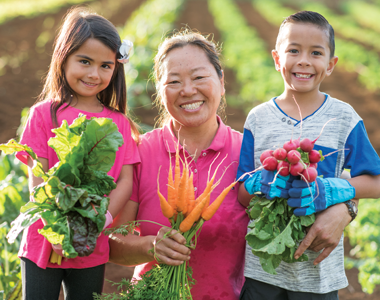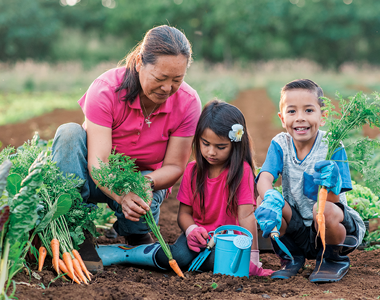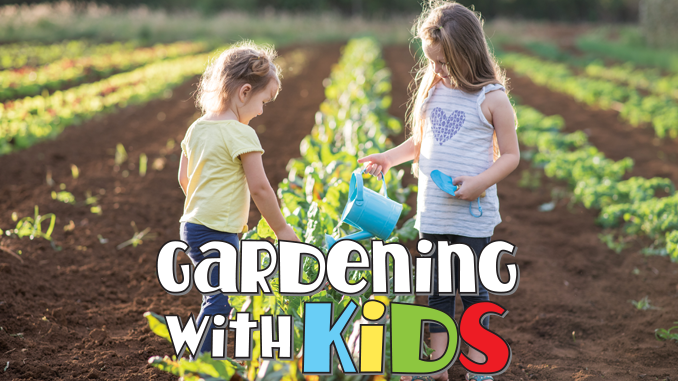How It Affects Your Child’s Brain, Body and Soul
For parents struggling to find ways to encourage their kids to eat a healthy and balanced diet, gardening can be an important tool. Don’t let the idea overwhelm you. Gardening doesn’t require a perfectly level, large or sunny backyard. Try planting in a small raised bed or growing a few edibles in existing landscaping. Lean a trellis against an outside wall to grow beans or other edible vines. If you don’t have a lot of outdoor space, a few containers and soil in a sunny spot can be an easy way to grow herbs or some sweet cherry tomatoes that kids won’t be able to resist. Plants like zucchini, radishes and herbs are fairly easy to grow without a lot of fuss, making them a great return on your investment. The much bigger return is how planting a garden can affect not only your child’s body but also their brain and soul.

There is a myriad of scientific concepts you can discuss with your kids when planting and tending to a garden. One study showed that children who participated in gardening projects scored higher in science achievement than those who did not. The wonder of seeing a garden grow may spark your kids to ask questions like: Why do the plants need sun? How does the plant “drink” water? Why are worms good for the plants? Soon you will be talking about soil composition, photosynthesis and more! Add a little math while gardening by measuring how much plants are growing from week to week or counting the flowers on each plant. Supplement the experience of gardening with books about plants, trips to a botanical garden, or a photo journal of the plants that you are growing.
Once you harvest your produce, think of all the brain-building vitamins, minerals and phytonutrients your kids will be eating and how that will continue to boost brain development. Foods like spinach, garlic and beets (which are all easy to grow) have been shown to help with cognitive function and can give your kids an advantage in their growth and development. Even if kids may not love the foods they grow at first, teach them to keep tasting and trying and to train their taste buds to enjoy the bounty of their garden.
How gardening can affect the BODY:
When children participate in gardening, the fruits and vegetables that they are inspired to eat will no doubt have a positive effect on their body. But the act of gardening itself can also promote a healthy body. Kids LOVE to get their hands and feet in the dirt, which can run counter to the modern parenting style of compulsively keeping hands and surfaces cleaned and sanitized. However, consider the “hygiene hypothesis,” a theory that a lack of childhood exposure to germs actually increases a child’s susceptibility to diseases like asthma, allergies and autoimmune conditions by suppressing the development of the immune system. So getting dirty while gardening may actually strengthen a child’s immunity and overall health.

How gardening can affect the SOUL:
In this electronic age, kids need time for meaningful family connection. Time in the garden allows for team building and promotes communication skills. Planning a garden, planting the seeds and watching them grow give kids a sense of purpose and responsibility. Making sure that the plants get enough fertilizer, water and sun fosters mindfulness. The concepts learned while gardening, like composting food scraps for fertilizer or using gathered rainwater, can show kids a deep respect and responsibility for taking care of our planet.
Furthermore, studies show that when children have contact with soil during activities like digging and planting, they have improved moods, better learning experiences and decreased anxiety. Most important, the self-esteem a child gets from eating a perfect cucumber that he grew himself is priceless.








